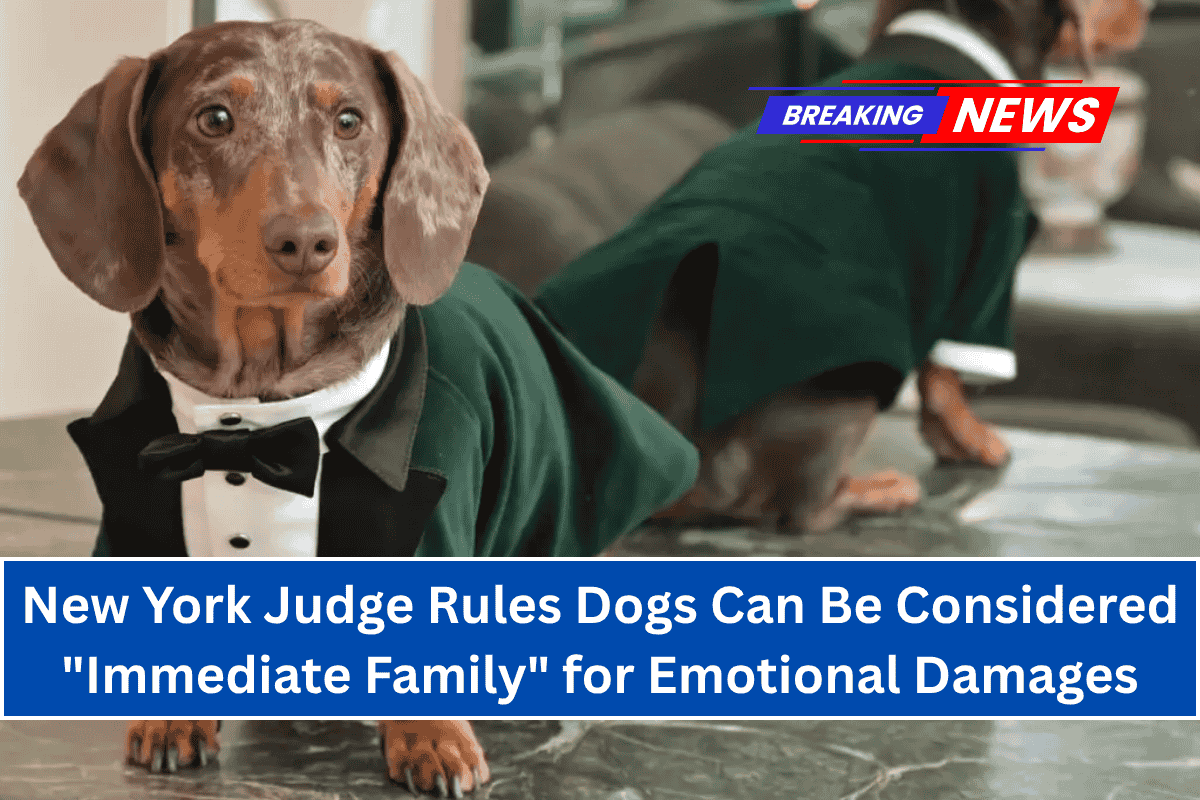In a groundbreaking decision, a New York judge has ruled that dogs can be treated as members of someone’s “immediate family,” allowing their owners or witnesses to sue for emotional damages if they witness their dog being harmed.
This ruling, issued by Judge Aaron Maslow of the Kings Supreme Court in Brooklyn, could set an important legal precedent for future cases involving emotional distress over the loss or harm of a pet.
The Case of Duke the Dachshund
The case revolves around a tragic incident that occurred nearly two years ago when a 4-year-old dachshund named Duke was struck and killed by a car while being walked by Nan DeBlase, the mother of Duke’s adopter, Trevor DeBlase.
The dog was on a leash when the driver, Mitchell Hill, allegedly ran a stop sign and made an improper left turn, striking Duke in the process. Nan DeBlase was nearly hit as well, as captured on surveillance footage of the incident.
Nan described the experience as “traumatic” and “extremely” difficult, recalling how she jumped out of the way to avoid being hit but was unable to save Duke. After the accident, Trevor DeBlase expressed his heartbreak over the loss of his beloved pet on social media, calling Duke “a poor, sweet dog” and stating that life would never be the same without him.
The Lawsuit Against Mitchell Hill
The DeBlases sued Hill for negligent driving, endangering Nan DeBlase, and causing emotional distress. Hill’s defense argued that pets are considered property, and as such, the DeBlases could only seek compensation for Duke’s monetary value, which was around $1,500, along with medical costs.
However, Judge Maslow disagreed with this approach, particularly in the case of Nan DeBlase, who was directly involved in the traumatic event.
Judge Maslow’s Ruling on Emotional Distress
Judge Maslow ruled that Nan DeBlase could seek emotional damages for witnessing the death of Duke, as she was physically connected to him at the time of the accident. The ruling acknowledged that her distress went beyond what one might typically experience from the loss of property.
Maslow also considered the concept of the “zone of danger doctrine,” which protects individuals who are at risk of injury due to someone else’s negligence. He stated, “It is reasonable for a jury to conclude that witnessing Duke being crushed led to emotional distress that goes beyond that which is generally felt by the loss of mere property.”
Maslow even went so far as to suggest that companion pets like Duke could be considered part of someone’s immediate family under the law, at least in cases where the animal is on a leash and involved in an accident that results in trauma for the owner or witness.
While Maslow did carve out a limitation for this ruling to apply only to pets being walked on a leash, he implied that the broader emotional connection people have with their pets could be acknowledged in future legal proceedings.
Moving Forward
With Judge Maslow’s ruling, the lawsuit against Hill will proceed to trial, allowing the DeBlases to continue seeking justice for the emotional distress caused by the death of their beloved dog.
Hill did not present any evidence in his defense during the proceedings, and the case is now set to have a significant impact on how the legal system views emotional distress claims related to the harm of pets.
This ruling is a significant step toward recognizing the deep emotional bonds between people and their pets. While traditionally pets have been viewed as property under the law, this decision could change how the legal system approaches cases involving harm to companion animals.
As the DeBlases’ lawsuit moves forward, it sets an important legal precedent for pet owners seeking emotional damages after experiencing trauma related to their pets’ harm or death.






